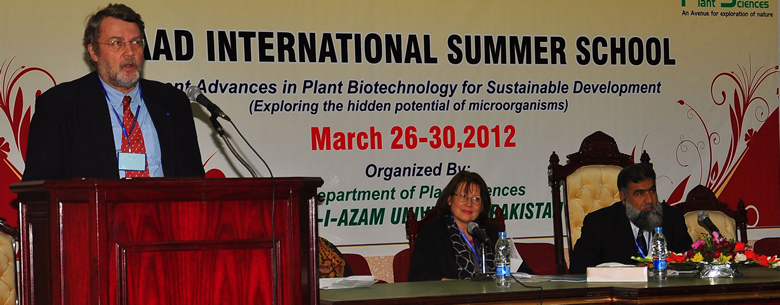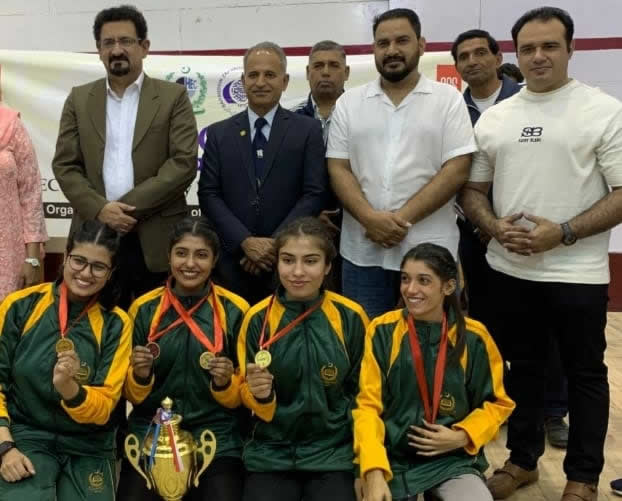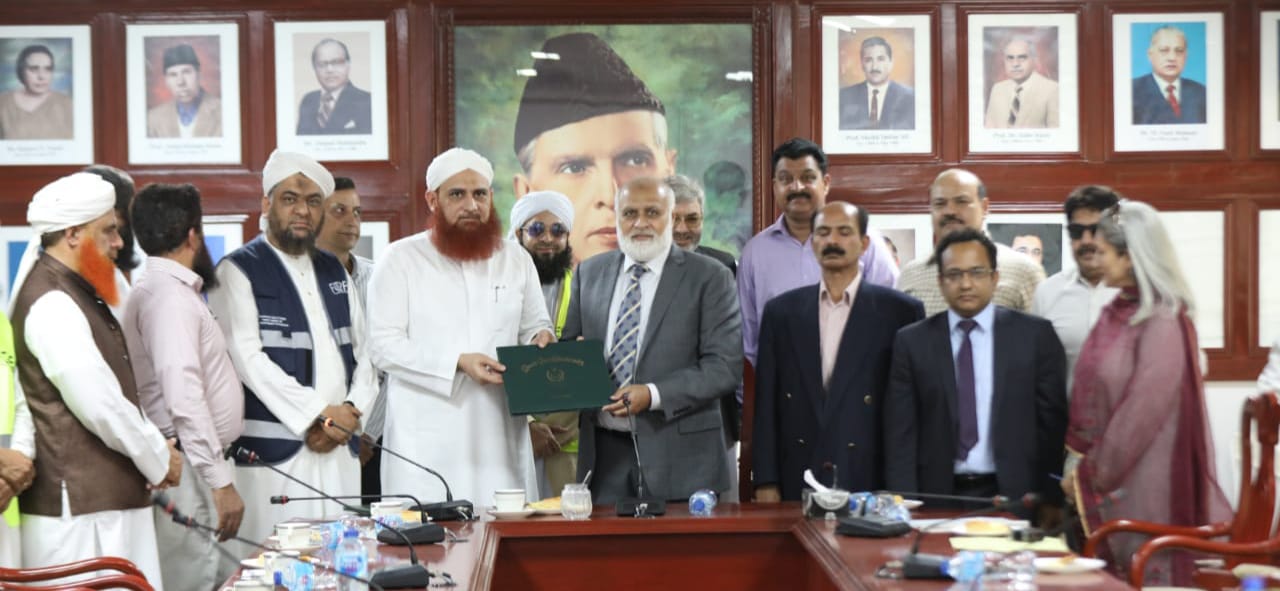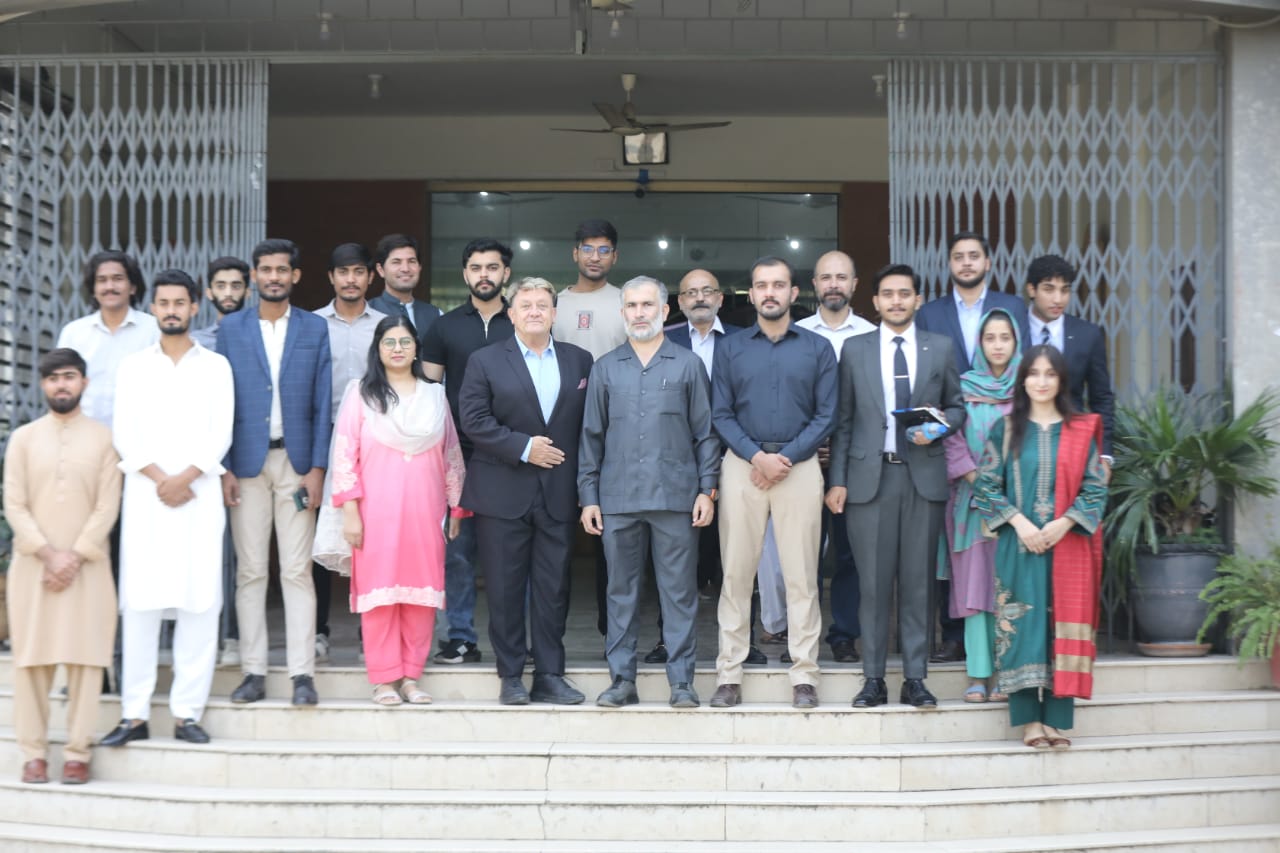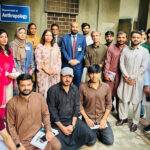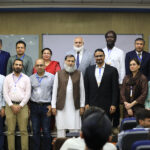International Summer School on Advances in Plant Biotechnology Begins
A week-long International Summer School on “Recent Advances in Plant Biotechnology for Sustainable Development (Exploring the hidden potential of Microorganisms)”kick started here at Quaid-i-Azam University (QAU). The Department of Plant Sciences (QAU) in collaboration with German Academic Exchange Service (DAAD) is hosting summer school.
Addressing the inaugural ceremony, QAU Vice-Chancellor, Prof. Dr. Masoom Yasinzai said that All the conventional methods which are in use for increasing the productivity are almost saturated and we need to look forward alternative and innovative ways. He said that it is heartening to know that all the topics included in the summer school for deliberation are extremely relevant to the issues that we are facing today.
The Vice-Chancellor congratulated the organizers of the conference, Department of Plant Sciences, Dr. Zahid and his team for conducting the event which will provide an ideal opportunity to the researchers and students to share their scientific ideas. He praised the efforts of DAAD and said that such events are vital to promote scientific culture between Pakistan and Federal Republic of Germany.
Prof. Dr. Asghri Bano, Chairperson, Department of Plant Sciences, (QAU) in her welcome address said that Pakistan has a rich Biodiversity of plants, animals and microbes. Currently the biodiversity of our country is facing the threats of deforestation, pollution, population, over exploitation of natural resources, invasive alien species, environmental problems and population pressure. There is a need to protect biodiversity for future generation in Pakistan by adopting the practical measures. The summer school will not only result in success but a healthy scientific collaboration will also emerge through this plat form.
Prof. Dr. Hans Joerg Jacobsen, Head Institute of Plant Genetics, University of Hanover Germany said that the world has -among others- to master several challenges, like population growth and decreasing arable land, climate change as well as decreasing fossil fuel reserves. “We need therefore novel plants, which produce more from less land, with lower inputs in water, fertilizers and pesticides as the use of more pesticides or fertilizers are not sustainable and water availability will decrease in large parts of the world” he added.
Dr. Jacobsen said that Promising new technologies, namely plant biotechnology and genetic engineering, are available, but, due to high regulatory hurdles in the developed countries, a matter of a few big companies, who can afford the high costs for commercializing new transgenic products. The public sector is thus kept away from the markets, despite the fact, that interesting prototypes have been developed, but are waiting on the shelves. The present level of regulatory measures is no longer tolerable as it prevents the development and the implementation of solutions which are urgently needed. “we have also to bridge the knowledge gap between developed and developing countries as the developing countries need to rely on the own capacities in order to be able to guarantee locally accepted and demand driven food and feed products” said Head of Institute of Plant Genetics.
Ms. Ursula saarbeck, chief executive cultural section, in her detailed presentation highlighted the services and opportunities provided by German Academic Exchange Service (DAAD) to the scholars, academicians and scientists in Pakistan. A large number of students and faculty members attended the inaugural ceremony of DAAD International Summer School.
 Circulars / Notifications
Circulars / Notifications

